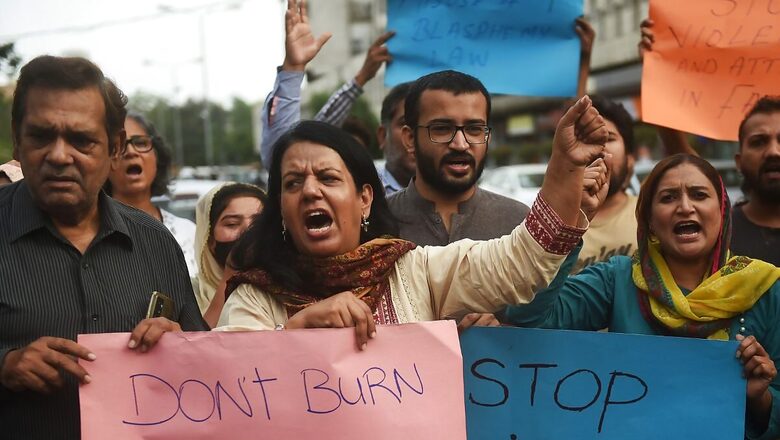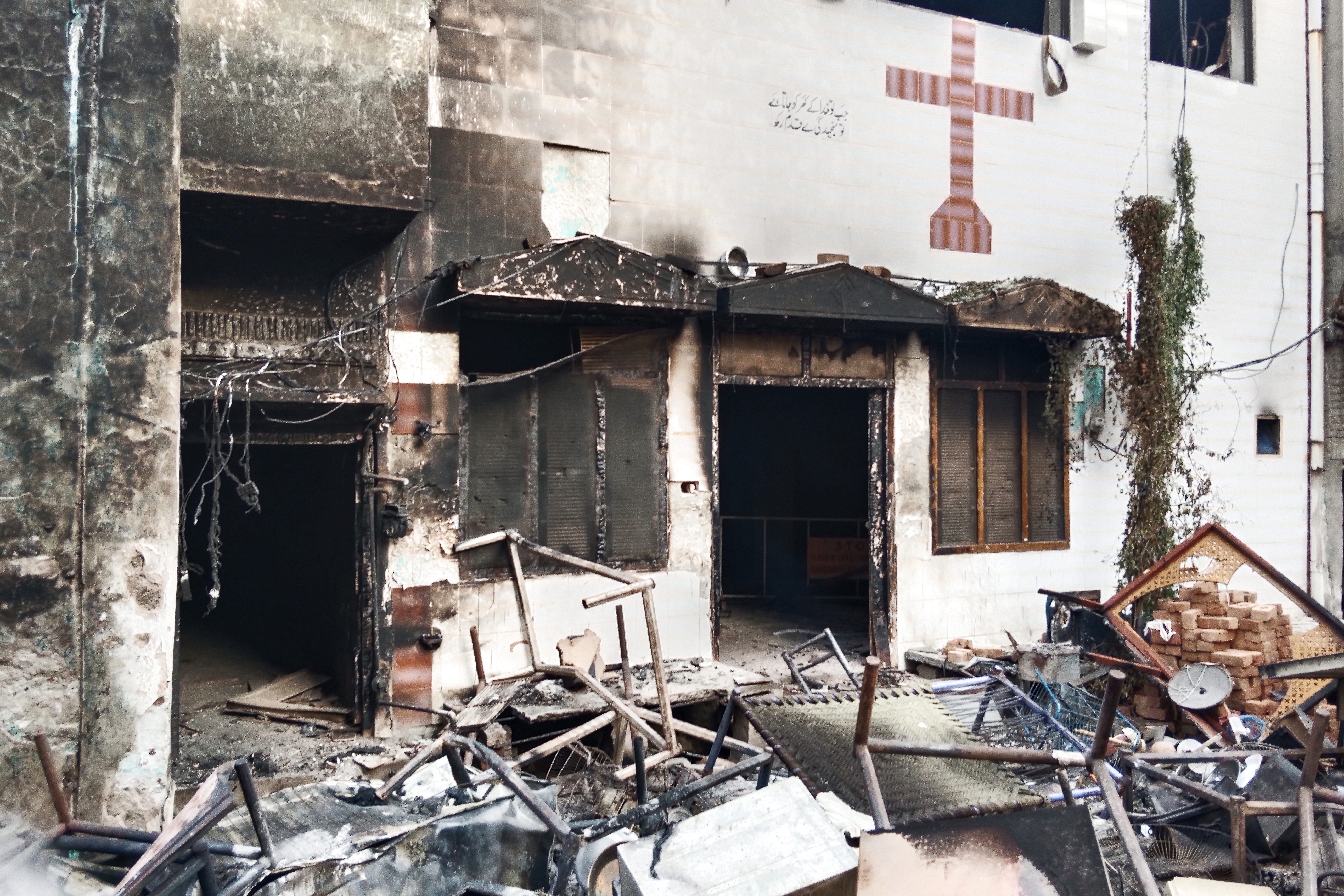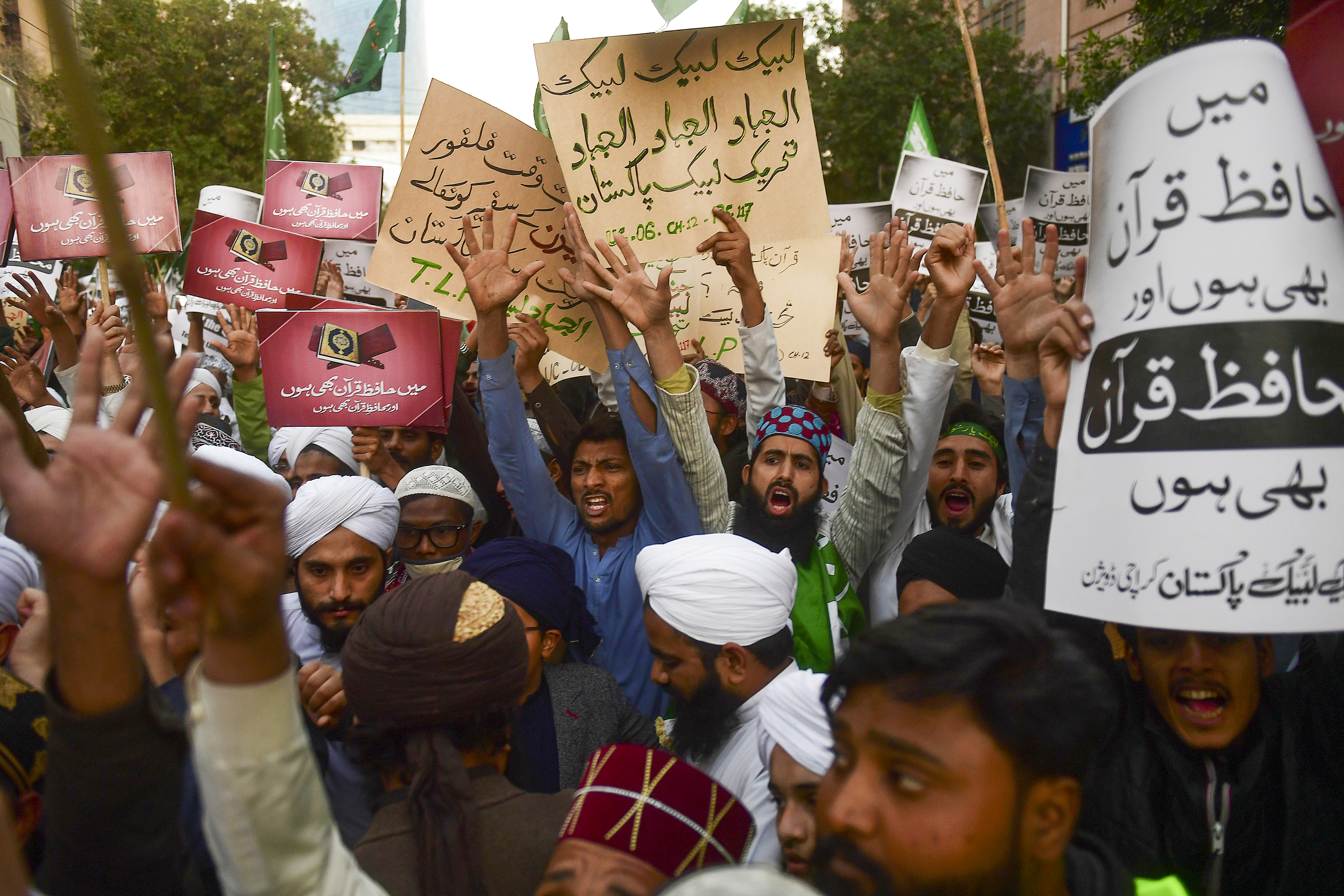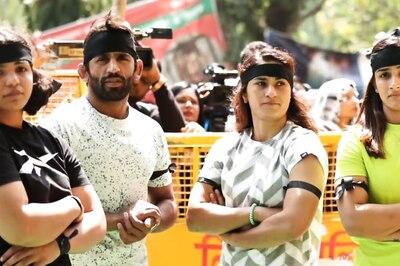
views
Twenty-one churches in Punjab province of Pakistan were attacked on Wednesday by mob over an alleged incident of blasphemy. Videos circulating on social media showed mobs of hundreds getting into places of worship, destroying properties and some even climbing atop and kicking the holy cross.
Pakistan Police have arrested two Christians accused of blasphemy claiming that the two men had desecrated the Koran. Locals said hundreds of people have fled the area to stay with relatives and have yet to return out of caution.
Meanwhile, homes and churches have been burned and ransacked by a crowd of hundreds that tore through the streets in Jaranwala, on the outskirts of Faisalabad on Wednesday. Police said more than 120 people had been arrested over the violence.
Blasphemy in Pakistan
Blasphemy is an incendiary charge in Muslim-majority Pakistan, where anyone deemed to have insulted Islam or Islamic figures can face the death penalty. It has been very sensitive issue in the country where even an accusation has caused riots and incite mobs to violence, lynching and killings.

Islamist right-wing leaders and political parties across Pakistan frequently rally around the issue. Politicians have been assassinated, lawyers murdered and students lynched over accusations of blasphemy.
In the last few decades, far-right religious parties have shot to prominent after campaigning explicitly based on protecting the “honour” and “sanctity” of Islam and its Prophet Muhammad.
How widespread is the issue?
Since 2011, when Punjab Governor Salmaan Taseer was shot dead by his bodyguard over a call for the blasphemy laws to be reformed, mainstream debate over the issue has been all but impossible.
Taseer had stood against the death sentence to Aasia Bibi who had been sentenced by a lower court, and even committed to seeking a presidential pardon for her. Some clerics issued edicts calling for his head and on 4 January 2011, he was assassinated at the Kohsar Market in Islamabad by his bodyguard Mumtaz Qadri, who disagreed with his opposition to Pakistan’s blasphemy law.
Taseer’s killer was lauded by many, and the murder was followed by the rise of the Tehreek-e-Labbaik Pakistan (TLP), a far-right party with widespread support that calls for blasphemers to be beheaded. The rise of the TLP has seen an increase in blasphemy cases filed on ideological grounds.
Asia Bibi Case
Aasia Bibi’s ordeal began in 2009 when two fellow farmworkers refused to drink from the same container as a Christian woman. There was a quarrel and the two Muslim women later accused Bibi of blasphemy.
A lower court had sentenced her to death after the women and a local cleric accused Bibi of having insulted Islam’s Prophet Muhammad during the altercation, a charge that she has consistently denied.
She was acquitted of blasphemy by Pakistan’s Supreme Court in 2018 after spending eight years on death row.

She later flew out of Pakistan after being held for months in protective custody by Pakistani authorities following her acquittal. Her lawyer Malook sought refuge in the Netherlands, citing threats to his life for having represented her.
Mashal Khan Lynching
Mashal Khan, a 25-year-old student studying mass communications at Abdul Wali Khan University Mardan in the province of Khyber Pakhtunkhwa, was dragged out of his university accommodation in April 2017 by a crowd of hundreds of his fellow students. He was badly beaten before being shot and his body mutilated.
In April, 2017 rumours spread that Khan had posted blasphemous material online, following which hundreds of students and some staff members marched through the campus searching for him. The mob broke into his room and dragged him out.
Viral video showed him being beaten, stamped on and shot. The mob kept attacking his body even after his death. The police after an investigation said there was no evidence that Mashal had committed blasphemy.
What do the laws say About Blasphemy?
Pakistan’s blasphemy laws were little-used until the 1970s and ’80s, when they were strengthened and expanded to include several clauses specific to insulting Islam.
The country has the world’s second-strictest blasphemy laws after Iran. Around 1,500 Pakistanis have been charged with blasphemy over the past three decades and there are at least 53 people in custody on blasphemy charges, according to reports.
According to the Centre for Social Justice (CSJ), till August 16, 2023, around 198 persons have been accused of blasphemy, 85 per cent of them Muslims, 9 per cent Ahmadis and 4.4 per cent Christians.
It said the Punjab province recorded over 75 per cent of the abuse of blasphemy laws cases in the past 36 years. “The aggregate accused comprises 52pc of minorities despite their share (3.52%) in the population of Pakistan,” the CSJ posted on X.
Judges hearing blasphemy cases have reported facing pressure to hand down convictions, regardless of the evidence, fearing being targeted by physical violence if they don’t.
According to current laws — which were strengthened once more this year — the offence of insulting the Prophet Mohammed carries a mandatory death sentence, while “defiling” the Koran carries life imprisonment.




















Comments
0 comment